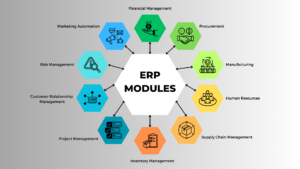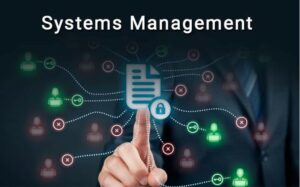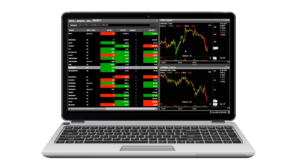The realm of supply chain management (SCM) is continually evolving, driven by technological advancements, changing consumer behaviors, and global market dynamics. To stay competitive and resilient, businesses must stay abreast of the latest trends shaping SCM practices. In this comprehensive guide, we delve into the current trends, emerging innovations, and future directions in supply chain management and software solutions.
Latest Trends in Supply Chain Management
1. Digital Transformation: Digitalization continues to revolutionize SCM, with the integration of technologies like IoT (Internet of Things), AI (Artificial Intelligence), and blockchain. These technologies optimize processes, enhance visibility, and enable predictive analytics for proactive decision-making.
2. Sustainability and ESG Initiatives: There is a growing emphasis on sustainable practices and Environmental, Social, and Governance (ESG) criteria throughout the supply chain. Companies are adopting eco-friendly processes, ethical sourcing, and carbon footprint reduction strategies.
3. Resilience and Risk Management: Recent disruptions have highlighted the importance of building resilient supply chains. Businesses are investing in risk management strategies, scenario planning, and supplier diversification to mitigate vulnerabilities.
4. Omnichannel and Customer Centricity: The shift towards omnichannel distribution models and personalized customer experiences is reshaping SCM. Demand sensing, real-time inventory management, and agile logistics are key enablers of this trend.
5. Circular Economy: Embracing circular economy principles, such as product lifecycle extension, remanufacturing, and recycling, is gaining traction. This approach reduces waste, lowers costs, and enhances brand reputation.
New Trends in Supply Chain Management
1. Supply Chain Transparency: Transparency across the supply chain—from sourcing to delivery—is becoming non-negotiable. Consumers and regulatory bodies demand visibility into product origins, ethical practices, and sustainability metrics.
2. Agile Supply Chains: Agile methodologies are being adopted to respond quickly to market changes and customer demands. Flexible manufacturing, adaptive logistics, and rapid prototyping enable companies to stay competitive in dynamic environments.
3. Digital Twins: The concept of digital twins, virtual replicas of physical supply chain assets and processes, is gaining popularity. These digital models enable simulation, optimization, and predictive maintenance, enhancing operational efficiency.
4. Autonomous Vehicles and Drones: Automation is extending to logistics and transportation through autonomous vehicles and drones. These technologies offer faster deliveries, lower costs, and improved last-mile logistics capabilities.
5. Robotic Process Automation (RPA): RPA is streamlining repetitive tasks in SCM, such as order processing, inventory management, and warehouse operations. This frees up human resources for strategic decision-making and complex problem-solving.
Future Trends in Supply Chain Management
1. AI and Machine Learning Advancements: AI and machine learning will continue to drive predictive analytics, demand forecasting, and dynamic pricing strategies. Cognitive supply chains capable of autonomous decision-making are on the horizon.
2. 5G Connectivity: The rollout of 5G networks will enable real-time data exchange and connectivity across the supply chain. Enhanced IoT capabilities and remote monitoring will optimize logistics, asset tracking, and operational efficiency.
3. Supply Chain Resilience and Flexibility: Building on lessons learned from recent disruptions, supply chains will prioritize resilience through digital twins, scenario planning, and agile supply chain networks.
4. Blockchain for Transparency and Traceability: Blockchain technology will enhance supply chain transparency, enabling secure, immutable records of transactions, product provenance, and compliance with regulatory standards.
5. Augmented Reality (AR) and Virtual Reality (VR): AR and VR applications will transform training, maintenance, and remote assistance within warehouses and distribution centers. These technologies improve worker productivity and reduce errors.
Supply Chain Software Trends
1. Cloud-Based SCM Solutions: Cloud computing continues to dominate the SCM software landscape, offering scalability, accessibility, and cost-efficiency. Cloud-based platforms facilitate real-time collaboration and data integration across global supply chains.
2. Integration of Predictive Analytics: SCM software is increasingly incorporating predictive analytics capabilities to forecast demand, optimize inventory levels, and mitigate supply chain risks proactively.
3. IoT-Enabled Supply Chain Platforms: IoT sensors and devices are integrated into SCM software to monitor inventory levels, track shipments in real-time, and ensure compliance with temperature-sensitive goods.
4. AI-Powered Supply Chain Optimization: AI algorithms are applied to optimize supply chain operations, from route planning and warehouse management to demand forecasting and procurement decisions.
5. Blockchain for Supply Chain Transparency: Blockchain technology is revolutionizing supply chain management by providing transparent and tamper-proof records of transactions, ensuring authenticity, and reducing fraud.
Conclusion
As supply chain management evolves, embracing these trends and adopting innovative software solutions will be critical for organizations aiming to enhance efficiency, mitigate risks, and meet evolving customer expectations. By staying proactive and leveraging cutting-edge technologies, businesses can position themselves at the forefront of SCM innovation, driving sustainable growth and competitiveness in a rapidly changing global landscape.











